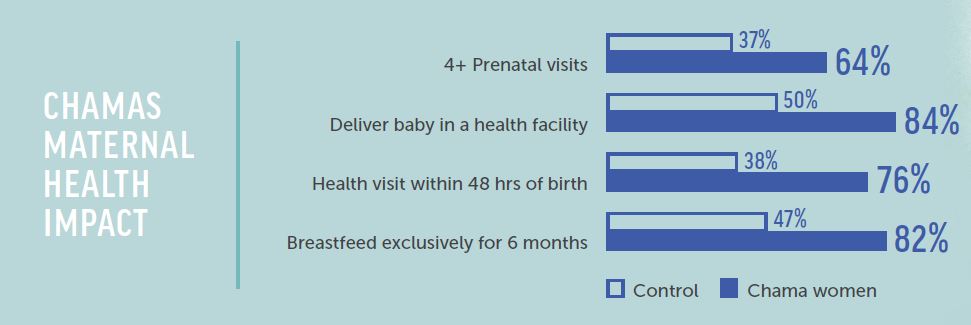Improving Care for Mothers and Children through Chamas
Jennifer grew up in the Nyelele community, a lush and rural area of Turbo sub-county. Growing up, she knew many women who died in childbirth, and the losses motivated her to become a community health volunteer. She received an AMPATH training one year ago to start a mothers’ group called Chama cha Mamatoto (translated as mother-child groups).
Jennifer, Chama leader
“Mobilizing for the first time, I traveled many kilometers going house to house to convince mamas and ‘soon-to-be mamas’ to come to the chamas group,” she shares. “We started small with just a few, but now have more than 20 women in our chama.”
Chama meetings include health and social wellness education combined with financial skills and access to group savings and loans.
Chamas have a longstanding presence in East Africa as networks to meet and pool resources, especially in emergencies like famine, floods or funerals. Using this model, AMPATH developed Chama cha Mamatoto in 2012. Women in chamas generally join in pregnancy and remain together for 3-4 years, generating peer support and friendship. Biweekly chama meetings include health and social wellness education, combined with financial skills and access to group savings and loans.
Chamas show significant benefits for babies, mothers and communities when compared to control groups. Facilitated by government community health volunteers, they are a low-cost, self-sustaining solution integrating health, social and financial education.
Donor funding allowed chamas to launch and scale up steadily over the past 6 years, expanding geographically and in scope. A positive parenting program called Malezi Mema was piloted in 2015, adding parenting skills that safeguard children’s development. Similarly, significant results followed with an 11% decrease in child malnutrition and a 53% decrease in harsh punishment. Fathers are now also being served through pilot Chama cha Babatoto groups.
The progress achieved through chamas have made them an important aspect of AMPATH’s population health strategy by disrupting intergenerational cycles of poverty and poor health. And they’ve become a way to enhance education and screening for chronic disease like diabetes, hypertension and cancer.
Chama leader Jennifer reflects, “I feel proud of the change that is happening in our community. We lose many less mamas now in childbirth than before. And with exclusive breastfeeding, babies are now more resistant to diseases like diarrhea and thrush. That is out of this Mamatoto here in Nyelele.”



